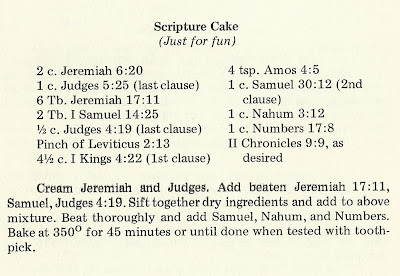In Creative Writing the teacher always gave us assignments
like “write about your grandmother’s kitchen.” I know why she did this. She
wanted us to write about cookies and love. Blech. The girls all wrote about
cookies and love and it made me want to throw up. Hannah wrote about how her
grandmother made chocolate chip cookies with her and how she let her mix the
dough and how she ate them afterwards when the chocolate was all melty and her
grandmother wore wire-rim glasses and an apron and slippers, and when her
grandpa came home he ate cookies too and gave them all a big kiss. Hannah
Hopkins is a liar because everyone knows she has no grandparents, because her
granddaddy killed her grandmother and spent the rest of his life in jail. Killed
her dead with a carving knife. She got an A+. That’s when I stopped believing
in Creative Writing.
This year we have a new teacher and she’s lazy. She’s using
the last teacher’s class plans, so we have to do all the same assignments over
again. Last time, I wrote about how my grandmother’s kitchen had flowery
wallpaper and smelled like cotton candy and how my grandmother used to be in
the circus, which is how come she loved cotton candy. I got a D. I went too
far, I guess. This year, I’m going with THE TRUTH, because being creative
doesn’t pay off.
Chapter One
My grandmother makes me eat potato pancakes every day. This
is because she lives on a potato farm and there isn’t much else to eat. My
grandmother is a stout woman who never smiles, and she always wears the same
blue spotted dress and apron and puts her grey hair in a bun on her head. She is
too poor for wallpaper.
Chapter Two
When my grandmother makes potato pancakes, she clamps a
steel grinder to the wooden table in the kitchen and cranks the handle while
pushing potatoes in. The potato mush comes out the other end. I sit and watch.
There is nothing else to do.
Chapter Three
Once my grandmother has ground all the potatoes into mush,
she mixes it with some flour, salt and pepper, and hands me an onion to cut up.
She doesn’t like cutting onions because they make her cry. They make me cry
too. But I do it.
Chapter Four
My grandmother mixes the onion with the potato mush and
warms up a skillet with a big knob of bacon fat in it. Then she puts in handfuls
of the potato mixture. They sizzle when they hit the pan. I often wish for a
sausage instead but this is not to be. I once asked for sausage and she threw a
spoon at me. Grandmother isn’t one for conversation.
Chapter Five
I do not know my grandmother’s name. I’m not sure my mother
knows my grandmother’s name, and they’re related. My mother grew up eating
potato pancakes and as soon as she had me she left to go work in the big city
so here I am. Maybe her name is Gretchen. Maybe it is Gerta. Maybe it’s
Esperanza. OK, that’s impossible, I know that. Esperanza means “hope” in
Spanish. Maybe it’s Verzweiflung. That’s a German word, and she is German.
Chapter Six
When the potato pancakes are done, Grandmother stands over
me and makes sure I eat every bit. This is because she suspects I do not like
potato pancakes. If I had a dog, I would feed them to the dog. Some apple sauce
would be nice. A dollop of sour cream would be better. A sausage would be
better still. After I have eaten the potato pancake, Grandmother wipes my face
with a foul-smelling rag and sends me out to play. Most of the time she hands
me a garden fork and basket because I also have to dig up more potatoes for
dinner. This leaves very little time for play. A dog would be nice. A dog and a
ball would be better.
Chapter Seven
When I grow up I will never eat another potato pancake. If I
never see a potato pancake again in my life I will consider my life to have
been a success. When I grow up I will eat sausages and own a dog. I will marry
a lady named Esperanza who smells like cotton candy. Some people might call
this wishful thinking, but I call it ambition.
The End.
The Cooking of Germany, Time-Life Books, 1968
Also from this book: Sauerkraut Stuffed Pineapple, Ludwig Boltzmann's Steak Tartar, A Fate Worse Than Death, When The Wheels Fall Off




























